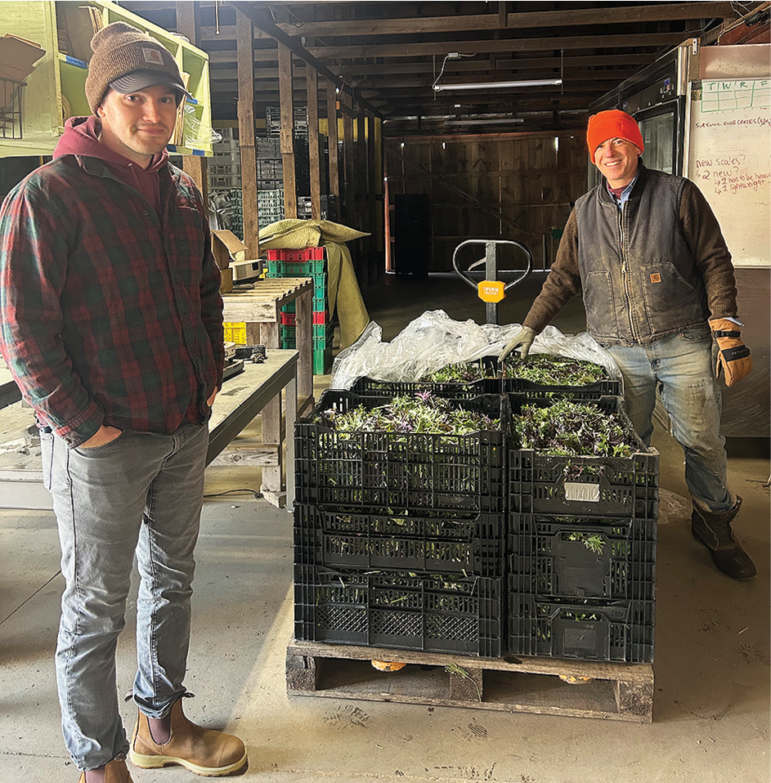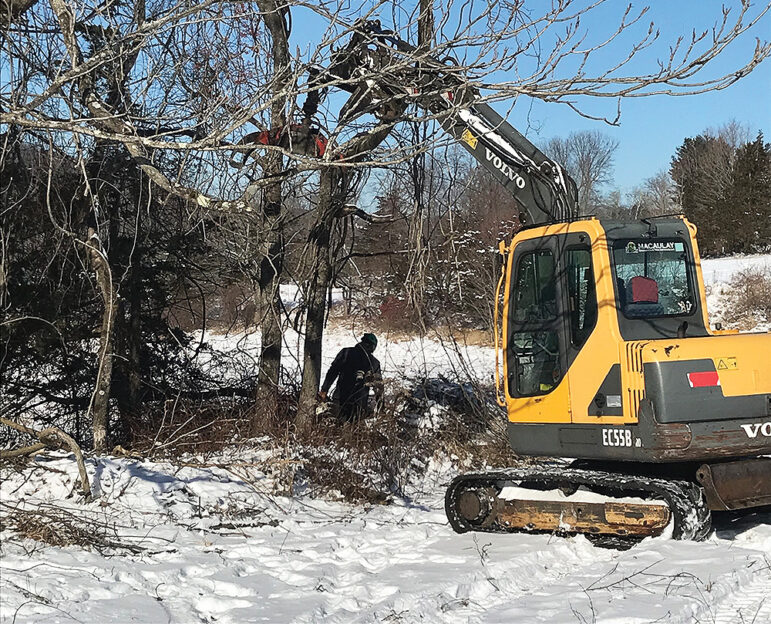While there is plenty of winter left here in New England, Farm Manager Joe O’Grady has turned his attention to preparing for the growing season. We are thrilled to report that our entire farm crew will return to Holcomb Farm this summer! We know our customers will be as happy to hear this as we are! In addition, as of this writing, the planting plan is done, the seed order is in, and the Summer CSA shares are selling fast. We’re getting excited!
Act now to join our CSA!
Fewer shares will be offered in 2025, as we continue to focus on the long-term sustainability of the soil, which requires periodic resting of the fields. Those who commit now will receive 20 weeks of food that far exceeds its retail value. If you haven’t already done so, secure your place in our CSA membership at holcombfarm.square.site
A transformative opportunity?
Last month, we shared the news of the Friends’ work, with the support of the Town, to explore the repurposing of the former West Granby United Methodist Church into a facility to expand our farming programs. That work continues, and while no decisions have been made, what we have learned is that, if all the pieces come together, this opportunity would be transformative for Granby’s own Holcomb Farm.
The vision that is emerging includes several exciting elements.
First, we envision a post-harvest production facility – known as a Wash and Pack – allowing us to process winter and greenhouse produce throughout the winter. As this article is being written (mid-February), our crew is working in the cold and snow to prepare the final pick-up of our sold-out Winter CSA. This year, the number of Winter CSA shares we were able to make available were limited more by our ability to process them than they were by what we grew. This new facility would enhance working conditions year-round; and would enable us to significantly increase the amount of local, chemical-free, nutrient-dense, fresh produce we could make available to our customers throughout the winter. Imagine having access to fresh, local greens all winter long.

In addition, the repurposed building offers the potential for a year-round retail Farm Store, stocked with our own produce as well as products from other local producers, and perhaps even artists and craftspeople.
Staff break rooms and office are sorely needed. With very little renovation, the church’s former offices and classrooms could be reborn.
Finally, a lovely “parlor” and large kitchen suggest additional possibilities for both the Friends and other community partners.
So, where are we now? Behind the scenes, projections are being made, estimates secured, and numbers crunched. Grants are being sought, and some quiet fundraising is taking place. The building itself, which was left fully furnished, is being cleaned out. We have invited other nonprofit organizations to take whatever they could use. Here are just a few examples:
Granby’s Congregational Church found bibles, music, and similar items it could use.
Several pre-schools, including Granby’s Valley Preschool and Auer Farm’s new “Discovery Barn” found furnishings and toys to enhance their programs.
ReStore, which supports Habitat for Humanity, took a truckload of chairs and tables, and even a refrigerator, destined for new lives in new homes.
The Granby Senior Center will be repurposing an industrial meat slicer and some other kitchen items in its new kitchen.

No home here for the spotted lantern fly

For more than 30 years, the Friends of Holcomb Farm’s mission has been the same: to preserve, promote and utilize an historic working farm in West Granby. Preservation took a giant step this January, when a large grove of invasive trees was cut down and reduced to tiny chips.
The trees were so-called Trees of Heaven (Ailanthus altissima). They grew along a rock wall running parallel to Simsbury Road several hundred feet uphill on the east side of the farm.
Trees of Heaven are native to China and were first brought to this country in 1784. At the time, they were viewed as desirable, tough and fast growing, with purple blossoms in the spring. They were offered in nursery catalogs into the twentieth century. They are now naturalized over much of the United States.
They are very fast-growing at three to five feet per year and reach 60 feet tall. They sucker and quickly result in spreading colonies. Leading authorities Michael Dirr and Keith Warren describe the species as “remarkably adaptable to salt, grime, soot, air pollution, low and high pH, heavy clay soil, sandy soil, and low oxygen tensions in the soil.” They add “that for impossible conditions this tree has a place.” It is extremely common in much of the Bronx, where it grows among abandoned buildings.
The decision to remove them was driven by their status as the favored host tree of the Spotted Lantern Fly (Lycorma delicatula), or SLF. According to the Connecticut Agricultural Experiment Station, the SLF has two small established populations in New Haven and Fairfield Counties, and individuals have been identified in numerous towns. It arrived in the state in 2018. Prior to its arrival, it had destroyed many vineyards in Pennsylvania. It is a particular threat to forests, orchards, vineyards, and nurseries. The SLF arrived from China, Taiwan and Vietnam, and it attacks more than 70 woody plant species. A sap-feeding plant hopper, it feeds on agricultural crops like apples, grapes, hops, and fruit trees. Friends of Holcomb Farm was advised by the CAES director, Dr. Jeffrey Ward, to remove all the Trees of Heaven. The CAES website reports that the SLF is “probably the most serious agricultural pest to hit the U.S. shores in a long time.”
The Friends contracted with Bobby Macaulay’s company, Macaulay Excavation & Tree Services LLC, of East Granby, to remove the trees. In late January, Macaulay and his crew removed about 30 trees along the rock wall and ground the stumps and wood into small chips. The largest stump was more than 36 inches in diameter, and was only about 35 years old, based on a ring count. The work took two days.
